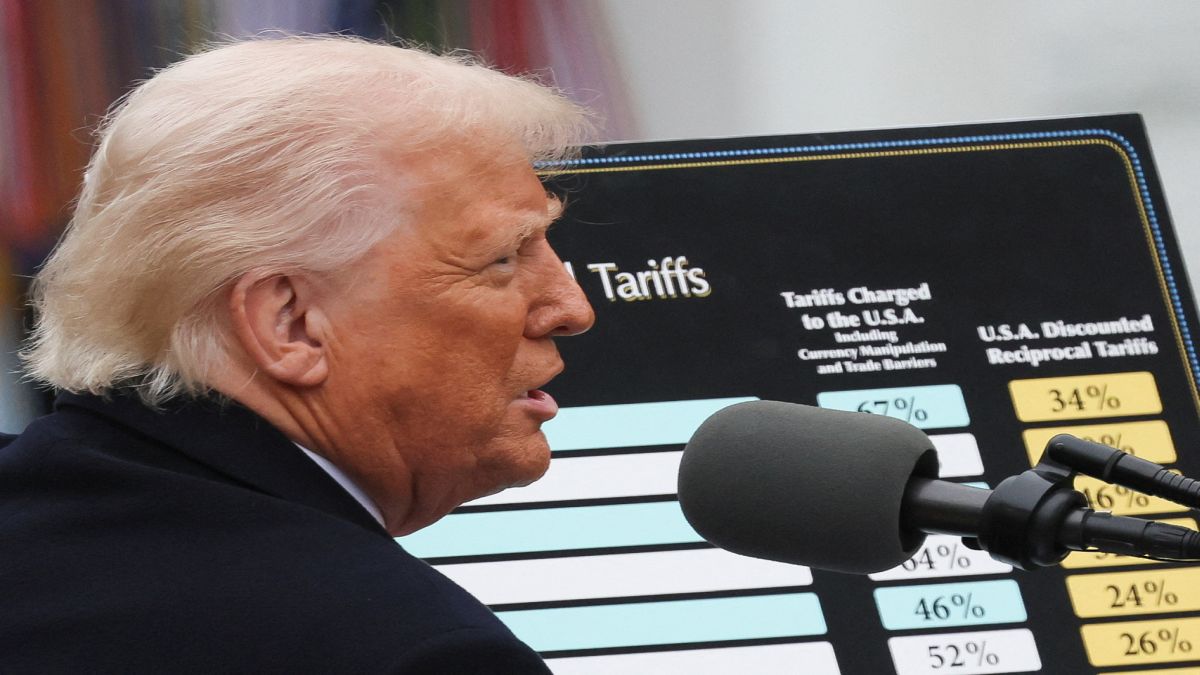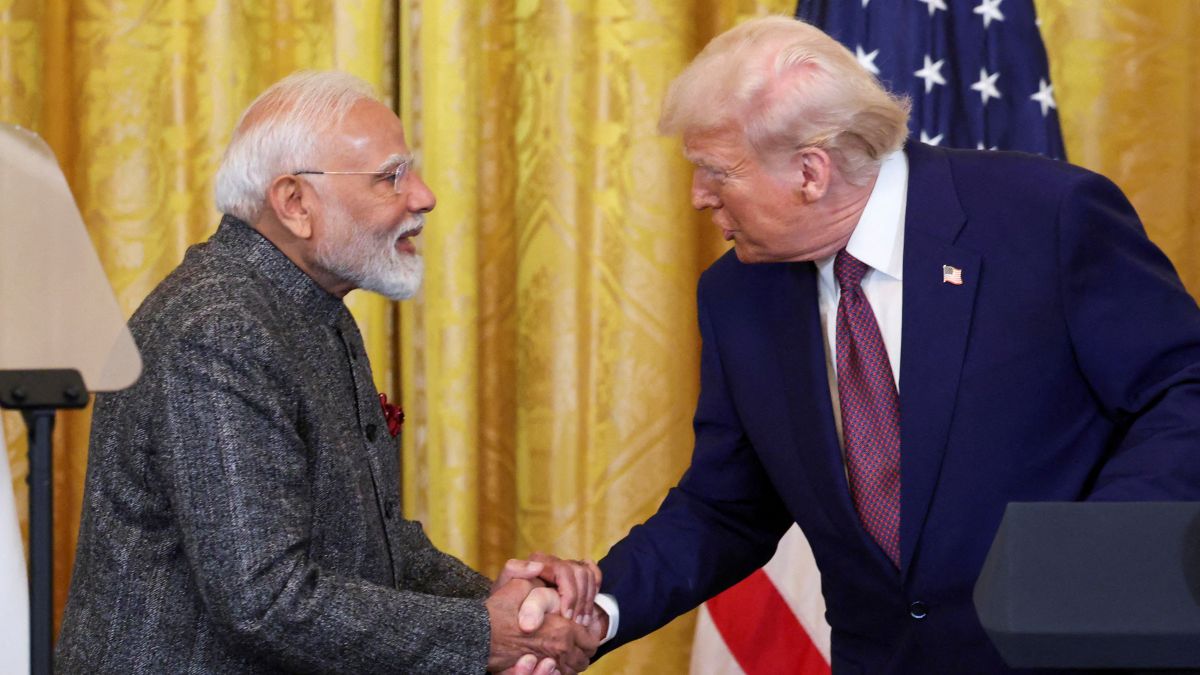United States President Donald Trump has ignited a trade war as he slapped 10 per cent tariffs on imports from around the world and harsher levies on key trading partners such as the European Union (EU) and India.
Holding up a chart of the different tariffs, he will impose — they will come into effect on April 5 and 9 respectively — Trump said that this was a poignant moment in America’s history. “This is one of the most important days, in my opinion, in American history,” said Trump. “It’s our declaration of economic independence.”
While the US president has hailed his ‘Liberation Day’ tariffs as a moment to celebrate — he said that “jobs and factories will come roaring back into our country” — economists have said that consumers will likely encounter higher inflation, with prices for items such as coffee and chocolate among others seeing an increase.
Catch live updates from Trump’s tariffs announcement here
So which things could become more expensive?
Cars
The cost of purchasing an automobile and maintaining it will rise in the US, experts believe.
President Trump has announced a flat 25 per cent tariff on cars and parts. This means the cost of cars built in America will increase along with those imported into the country. Anderson Economic Group has estimated that tariffs on parts just coming only from Canada and Mexico could lead to prices rising by roughly $4,000-$10,000 depending on the vehicle.
According to the firm, vehicles to be hit hardest are luxury sedans and SUVs manufactured by Audi, BMW, Jaguar-Land Rover, Mercedes-Benz, Genesis and Lexus.
Car dealers have already stated that Trump’s tariffs would hit American consumers hard and fast, warning that even better-off clients would not be able to keep up with the spike. Speaking to CNN, David Kelleher, president of David Auto Group, said a $30,000 car may become $375,000, meaning that his clients could be asked to fork out $175 more per month. “Our customers … are middle-class people. They just can’t afford that kind of bump,” Kelleher said.
Clothes
The bulk of apparel and shoes sold in US stores like Walmart and Target is manufactured outside the US, with China, Vietnam and Bangladesh among the biggest exporters.
All three nations are facing heavy reciprocal tariffs — Trump has levied 34 per cent on China, 46 per cent on Vietnam and 37 per cent on Bangladesh.
“We are deeply disappointed by the Trump Administration’s decision to impose new tariffs on all imports,” the trade group United States Fashion Industry Association said in a statement. “This action will particularly affect American fashion brands and retailers.”
Fashion stocks immediately dipped following Trump’s announcement. Lululemon shares dropped over 10 per cent, while Nike’s and Ralph Lauren’s fell seven percent.
Swiss watches
The American’s dream of owning a Swiss watch is also set to get more expensive. The US has levied a 31 per cent reciprocal tariff on the Alpine nation, which will impact watches from affordable brands such as Swatch to expensive timepieces manufactured by the likes of Rolex.
Notably, the tariff announcement comes as the industry gathers in Geneva for Watches and Wonders, where 60 top brands unveil new products and meet with retailers and international media in a coordinated effort to promote the industry.
“We cannot make Swiss watches in the US,” Rolf Studer, the co-CEO of Swiss brand Oris, said to Hodinkee ahead of Trump’s tariff announcement. “Value creation is in the distribution, in the retailing alone, and if you would tax our products, then that would affect that value creation from a US point of view in their home market,” he added.
Wine and coffee
The average American’s morning cuppa is also likely to get more expensive. The US imports about 80 per cent of its coffee beans from Latin American countries such as Brazil and Colombia, according to the US Department of Agriculture. As per Trump’s ‘Liberation Day’ announcement, both countries will now see a 10 per cent levy.
Mark Wain, co-founder of Caffe Luxxe, told Spectrum News that the tariffs are adding strain to an already stretched thin industry. “The tariffs aren’t making our jobs any easier. It’s not like we can shift coffee supply from Latin America to coffee that we buy domestically because we don’t have domestic production,” he said.
And if you thought you could drown your sorrows of more expensive coffee with drinking wine, think again. Wine from Italy and France will also get more expensive as Trump has levied a 20 per cent reciprocal tariff on all EU goods.
Apple’s iPhones, iPads and more
Americans wanting Apple’s iPhones will also most likely have to spend more. China is a big exporter of Apple products. However, Trump has hit China with a reciprocal tariff of 34 per cent. This means that any product manufactured there and imported into the US could see higher prices soon after the levies go into effect on April 9.
Additionally, Apple has moved some of its production of iPads and AirPods to Vietnam. But this will also get costlier as Trump has levied 46 per cent tariffs on the Asian country.
Apple’s stock fell 5.7 per cent in aftermarket trading following Trump’s remarks.
Home Furniture
Redoing one’s home will also get more expensive in America. Around 30 per cent to 40 per cent of furniture sold in the US is manufactured in other countries, with China and Vietnam being the top exporters to the US.
Other major furniture exports on the list include Indonesia, which has been slapped with a 32 per cent tariff. India, which also exports furniture to the US, will also see a ’26 per cent discounted tariff’.
With inputs from agencies


)
)
)
)
)
)
)
)
)



